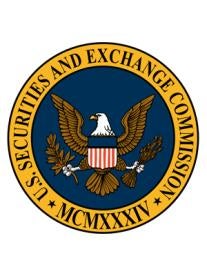On July 8, 2014, the SEC announced that it had settled charges that a school district in California misled bond investors about its failure to comply with its continuing disclosure obligations under Rule 15c2-12 of the Exchange Act. Pursuant to the Municipalities Continuing Disclosure Cooperation (“MCDC”) Initiative, Kings Canyon Joint Unified School District, without admitting or denying the SEC’s findings, agreed to entry of an Order (1) finding that it was in violation of Section 17(a)(2) of the Securities Act, (2) requiring it to cease and desist from violating Section 17(a)(2), (3) requiring it to establish written policies and procedures and to conduct periodic training regarding continuing disclosure obligations, and (4) requiring it to cooperate with the Enforcement Division in any subsequent investigation and to disclose the settlement in future bond offering materials. The SEC did not order any disgorgement or civil penalty.
Rule 15c2-12 requires that an underwriter obtain a written agreement from an issuer, for the benefit of bondholders, in which the issuer promises to submit certain financial information on an annual basis. This financial information is usually submitted to appropriate national and state repositories where it is available to the investing public. Notably, a broker-dealer must consider an issuer’s failure to disclose such financial information in determining whether to recommend a security and must disclose the failure to provide such financial information to customers. Rule 15c2-12 undertakings must be described in final Official Statements.
According to the SEC, Kings Canyon publicly offered $19 million of municipal bonds in December 2006, $4.5 million of municipal bonds in November 2007, and $6.7 million of municipal bonds in December 2007. The SEC found that Kings Canyon executed 15c2-12 agreements to affirm that it had made continuing disclosures of financial information. The SEC alleged, without specificity, that Kings Canyon failed to submit “some” of the disclosures required by that agreement.
According to the Order, in November 2010, Kings Canyon offered $6.8 million of municipal bonds. The Official Statement for the 2010 offering stated that Kings Canyon “has had no instance in the previous five years in which it failed to comply in all material respects with any previous continuing disclosure obligation .…” Again, without providing specifics as to what information Kings Canyon did not disclose, the SEC found that statement to be “untrue.”
The SEC concluded that Kings Canyon’s inclusion of the “untrue statement” violated Section 17(a)(2). Section 17(a)(2) makes it unlawful “in the offer or sale of any securities … to obtain money or property by means of any untrue statement of material fact or omission to state a material fact necessary in order to make statements made, in light of the circumstances under which they were made, not misleading.” Section 17(a)(2) does not require that the SEC prove that a respondent acted with “scienter.” Rather, the SEC may establish such a violation by showing that the respondent acted negligently.
The SEC also did not provide significant details about Kings Canyon’s negligence. The SEC simply concluded that Kings Canyon reviewed drafts of the 2010 Official Statement that included summary descriptions of previous continuing disclosure agreements and that it subsequently approved the Official Statement. Moreover, the SEC, without discussion, concluded that investors would “attach importance” to Kings Canyon’s failure to comply with its continuing disclosure agreements and that the alleged “untrue” statement was therefore material.
The SEC does not refer to any individuals in the settled Order against Kings Canyon. The SEC Order also does not indicate what role the underwriter played in drafting or approving the 2010 Official Statement. Given that the MCDC Initiative was announced on March 10, 2014, it appears that the staff conducted a fairly swift investigation in order to resolve the matter four months later. The undertaking that Kings Canyon cooperate with any subsequent investigation by the Enforcement Division may suggest, as we pointed out in our April 22 post, that the SEC may use issuers’ cooperation to pursue individuals. Moreover, it is not out of the realm of reason that the SEC may extend its focus to other participants in municipal securities offerings, such as underwriters and broker-dealers.




 />i
/>i

